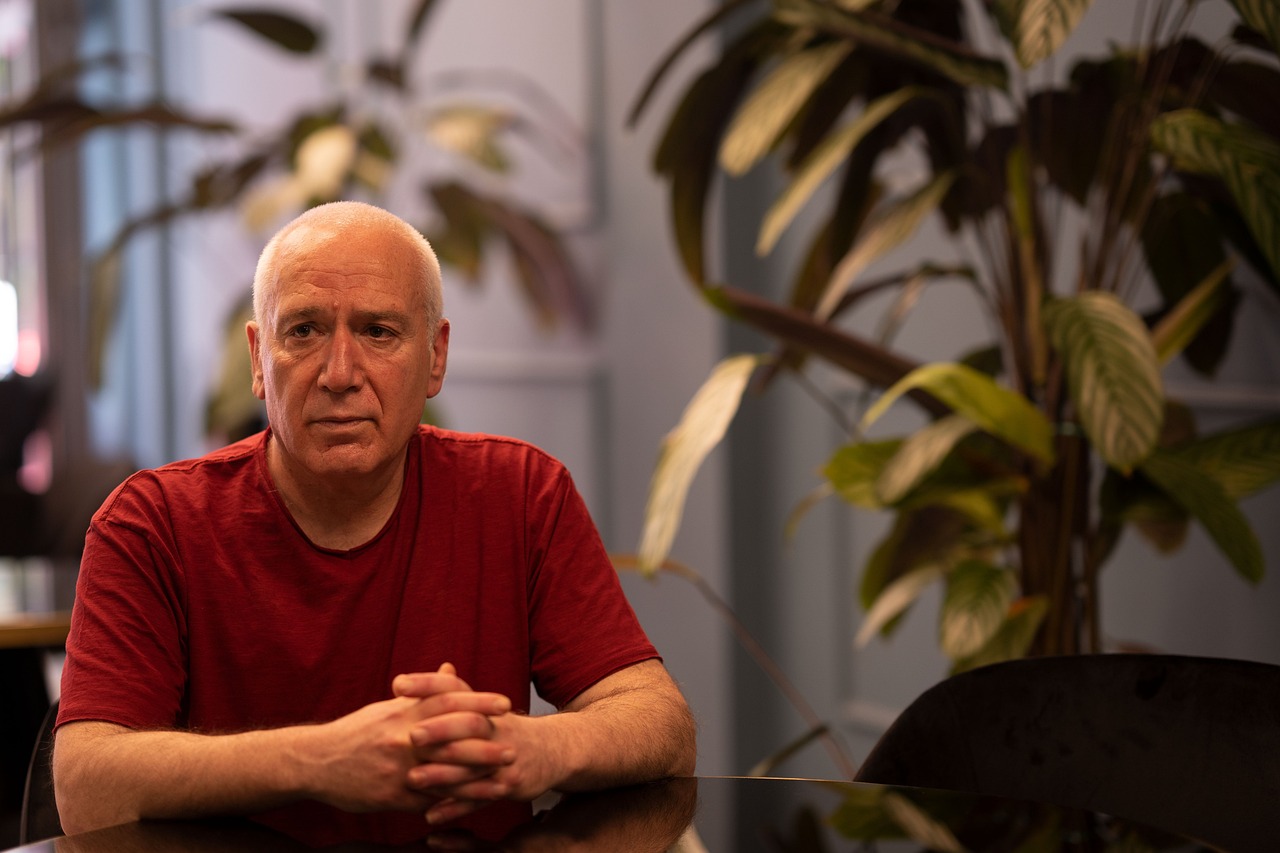Interpreting the Role of Ontology in the Evolution of Philosophy
Ontology, the branch of philosophy that delves into the nature of being and existence, has been a pivotal force in shaping philosophical thought throughout history. Imagine ontology as a vast ocean, with waves of ideas crashing against the shores of human understanding. Each philosophical era has contributed to this ocean, creating ripples that influence contemporary thought. From the ancient musings of early philosophers to the complex debates of modern thinkers, ontology has continually evolved, adapting to new insights and challenges. This article explores how ontology has not only shaped philosophical discourse but also how it remains a crucial element in understanding the world around us.
At its core, ontology seeks to answer profound questions: What does it mean to exist? What is the nature of reality? These inquiries are not merely academic; they resonate with our everyday experiences and shape our worldview. As we navigate through the historical contexts of ontology, we will uncover the significant developments and key figures that have contributed to its evolution. Each philosopher, with their unique perspective, has added a new layer to our understanding of existence, inviting us to contemplate our place in the universe.
Throughout history, ontology has intersected with various philosophical movements, influencing and being influenced by them. The journey of ontology is akin to a tapestry woven with diverse threads, each representing different schools of thought. From the dualistic views of Plato to Aristotle's more tangible explorations of substance, the evolution of ontology reflects the changing landscape of human thought. As we delve into these historical perspectives, we will see how ontology has not only shaped philosophical inquiry but has also provided a foundation for other disciplines, including metaphysics and epistemology.
In the modern era, ontology has faced new challenges and transformations, particularly with the rise of scientific advancements and existential thought. The questions surrounding existence have become more complex, prompting contemporary philosophers to redefine ontological concepts. This evolution is not just academic; it mirrors the rapid changes in society and technology, pushing us to reconsider what it means to exist in an increasingly interconnected world.
As we explore the significance of ontology in the evolution of philosophy, we will also address the contemporary debates that continue to shape our understanding of existence. From the intersection of ontology with science and technology to the implications of identity and universals, the discussions are as vibrant and dynamic as ever. Ultimately, the future of ontology remains an open question, inviting us to engage with its complexities and to reflect on its relevance in our lives.
- What is ontology? Ontology is a branch of philosophy that studies the nature of being, existence, and reality.
- Why is ontology important in philosophy? It provides foundational insights that shape other philosophical disciplines, such as metaphysics and epistemology.
- How has ontology evolved over time? Ontology has transformed through various philosophical eras, influenced by key thinkers and societal changes.
- What are some contemporary debates in ontology? Current discussions include the nature of identity, the concept of universals, and the impact of technology on our understanding of existence.

The Foundations of Ontology
Ontology, at its core, is the philosophical study of being and existence. It delves into questions that have perplexed thinkers for centuries: What does it mean to exist? What is the nature of reality? By examining these fundamental inquiries, ontology lays the groundwork for various other branches of philosophy, including metaphysics and epistemology. Understanding ontology is akin to understanding the very fabric of our reality; it acts as a lens through which we can analyze everything else in the philosophical realm. Without a firm grasp of ontology, one might find themselves lost in the intricate web of philosophical thought.
To appreciate the significance of ontology, it's essential to recognize its foundational elements. These include:
- Being: The most basic concept in ontology, referring to existence itself.
- Essence: What something is at its core, beyond its physical attributes.
- Substance: The underlying reality that supports all properties and changes.
- Identity: The principle that an entity is the same as itself, even as it undergoes change.
These elements serve as the building blocks of ontological inquiry. They help philosophers dissect and understand the complexities of existence. For instance, when we ponder the essence of a tree, we're not just talking about its physical characteristics—its height, color, or size—but rather what it means to be a tree. This distinction is crucial in ontology, as it encourages a deeper exploration of the nature of things rather than merely their observable traits.
Moreover, ontology is not a static field; it evolves as our understanding of existence deepens. The introduction of new scientific discoveries and technological advancements continually challenges our ontological assumptions. For example, the advent of quantum physics has raised profound questions about the nature of reality, compelling philosophers to rethink traditional ontological categories. As we grapple with concepts such as virtual reality and artificial intelligence, ontology becomes even more relevant, pushing us to redefine what we consider "real."
In essence, the foundations of ontology are vital for anyone seeking to navigate the philosophical landscape. They provide the necessary tools to question, analyze, and ultimately understand the complexities of existence. As we move forward in this exploration of ontology, it’s crucial to keep these foundational concepts in mind, as they will serve as our guide through the historical developments and contemporary debates that follow.

Historical Perspectives on Ontology
Ontology, as a branch of philosophy, has undergone significant transformations throughout history, influenced by the thoughts and contributions of various thinkers. By examining these historical perspectives, we can better understand how ontology has evolved and shaped philosophical discourse. From ancient philosophers to modern theorists, each era has added layers of complexity and nuance to the understanding of being and existence.
In ancient times, philosophers like Plato and Aristotle laid the groundwork for ontological inquiry. Their explorations into the nature of reality and existence set the stage for future debates and developments. Plato, with his Theory of Forms, introduced a dualistic view that distinguished between the material world and a higher realm of ideals. This perspective was revolutionary, as it suggested that the essence of things exists beyond their physical manifestations.
Aristotle, on the other hand, took a more grounded approach. He focused on substance and essence, proposing that everything in the universe is a combination of form and matter. His ideas provided a concrete framework for understanding existence, emphasizing the importance of categorization and classification in ontology. The impact of these ancient thinkers cannot be overstated, as their inquiries paved the way for later developments in metaphysics and epistemology.
As we move into the medieval period, ontology began to intertwine with theology. Philosophers like Thomas Aquinas sought to reconcile faith and reason, leading to rich debates about the nature of existence and the divine. This era was marked by a struggle to understand how ontological concepts could coexist with religious beliefs. The dialogues of this time contributed significantly to the development of scholasticism, which emphasized rigorous logical reasoning in theological matters.
In the modern era, the landscape of ontology began to shift dramatically. Influenced by the rise of science and existential thought, philosophers started to challenge traditional views. Thinkers like René Descartes and Immanuel Kant introduced new methodologies and perspectives that questioned the very foundations of existence. Descartes’ famous dictum, "I think, therefore I am," underscored the significance of individual consciousness in ontological discussions, while Kant’s critique of pure reason examined the limits of human understanding concerning existence.
Today, contemporary debates in ontology continue to grapple with complex questions about identity, universals, and the nature of reality. Philosophers are exploring how advancements in science and technology impact our understanding of being. The intersection of ontology with fields like artificial intelligence and virtual reality raises intriguing questions: What does it mean to exist in a digital age? How do we define identity in a world where our experiences can be simulated?
The historical perspectives on ontology reveal a rich tapestry of thought that has evolved over millennia. Each philosophical movement has contributed to our understanding of existence, shaping the questions we ask and the frameworks we use to explore them. As we continue to engage with these ideas, it's essential to recognize the profound influence of our philosophical predecessors on contemporary ontological debates.
- What is ontology? Ontology is a branch of philosophy that studies the nature of being, existence, and reality.
- Who are the key figures in the history of ontology? Key figures include Plato, Aristotle, Thomas Aquinas, René Descartes, and Immanuel Kant.
- How has ontology evolved over time? Ontology has evolved from ancient philosophical inquiries to modern debates influenced by science and existentialism.
- What are some contemporary issues in ontology? Contemporary issues include identity, universals, and the implications of technology on our understanding of existence.

Ancient Philosophical Roots
When we dive into the ancient philosophical roots of ontology, we are essentially peering into the minds of thinkers who dared to ask the most profound questions about existence. These early philosophers, often referred to as the pre-Socratics, laid the groundwork for what would become a rich tapestry of ontological thought. Their inquiries were not just academic exercises; they were passionate explorations into the nature of reality itself. Imagine standing on the shores of a vast ocean of knowledge, with each wave representing a different philosophical idea that has shaped our understanding of being.
Among these early thinkers, Thales is often credited as the first philosopher to propose that a single substance underlies all existence. He famously suggested that everything is made of water, a radical idea that prompted others to think about the fundamental elements of reality. Following him, Anaximander introduced the concept of the apeiron, or the boundless, as the source of all things, pushing the boundaries of thought even further. These ideas were not just isolated musings; they sparked a dialogue that would echo through the ages.
As we move forward in time, we encounter the towering figures of Plato and Aristotle, who would take these ancient inquiries and transform them into more structured ontological frameworks. Plato’s Theory of Forms is a prime example, positing that the physical world is merely a shadow of a higher, unchanging reality. This dualistic view of existence not only influenced his contemporaries but set the stage for centuries of philosophical debate. In contrast, Aristotle grounded ontology in the tangible world, focusing on substance and essence, thereby providing a more practical approach to understanding being.
The ancient roots of ontology remind us that the quest for understanding existence is as old as philosophy itself. Each philosopher contributed a unique thread to the intricate fabric of ontological thought, creating a legacy that continues to resonate today. To illustrate the contributions of these ancient thinkers, consider the following table:
| Philosopher | Key Contribution |
|---|---|
| Thales | Proposed that water is the fundamental substance of all things. |
| Anaximander | Introduced the concept of the apeiron as the source of existence. |
| Plato | Theory of Forms, suggesting a dualistic reality. |
| Aristotle | Developed a framework based on substance and essence. |
In essence, the ancient philosophical roots of ontology are not just historical footnotes but vital components of our intellectual heritage. They challenge us to ponder the very nature of existence and the essence of what it means to be. As we continue to explore these ideas, we can appreciate the depth and complexity of ontological thought, which has evolved but remains intertwined with its ancient origins.
- What is ontology? Ontology is a branch of philosophy that studies the nature of being, existence, and reality.
- Who are the key figures in ancient ontology? Key figures include Thales, Anaximander, Plato, and Aristotle, each contributing unique ideas about existence.
- How did ancient philosophy influence modern thought? Ancient philosophical inquiries laid the groundwork for later developments in metaphysics and epistemology, influencing contemporary discussions on existence.
- What is the significance of Plato's Theory of Forms? Plato's Theory of Forms posits that the material world is a reflection of a higher reality, influencing many subsequent philosophical theories.
- How did Aristotle differ from Plato in his ontological views? Aristotle focused on the concrete aspects of existence, emphasizing substance and essence, while Plato emphasized abstract forms.

Plato's Theory of Forms
Plato's Theory of Forms stands as a monumental pillar in the realm of ontology, offering a profound dualistic view of reality that has influenced countless philosophical discussions throughout history. At its core, this theory posits that beyond our tangible world lies a realm of abstract, perfect forms or ideas, which are the true essence of all things we perceive. Imagine walking into a room filled with various chairs. Each chair, while unique in its design, shares the commonality of "chairness"—a concept that transcends physical characteristics. This is what Plato refers to as the Form of a Chair, an ideal that embodies the essence of what it means to be a chair.
To understand the implications of Plato's theory, one must consider the distinction between the world of appearances and the world of forms. The former is the realm we inhabit, where everything is subject to change and decay. In contrast, the latter is unchanging and eternal, containing the purest versions of concepts. For instance, the Form of Beauty itself exists independently of any beautiful object we might encounter. This notion leads to a fascinating inquiry: if the physical world is merely a shadow of the true reality, how do we come to know these forms? Plato suggests that through philosophical reasoning and dialectic, we can ascend from the world of senses to grasp the higher truths of the Forms.
Plato's Theory of Forms also raises intriguing questions about knowledge and perception. If reality is composed of these ideal forms, then our understanding of the world is inherently flawed, as we only perceive imperfect copies. This idea challenges us to reconsider how we define truth and understanding. It prompts a critical examination of our beliefs and the nature of reality itself. In essence, Plato invites us to embark on a journey of intellectual exploration, urging us to seek knowledge beyond mere appearances.
Moreover, the implications of this theory extend beyond mere philosophical discourse; they have profound ramifications in various fields, including ethics, art, and science. For example, in ethics, the Form of the Good serves as the ultimate standard against which all actions are measured. In art, understanding the Forms can elevate creative expression, as artists strive to capture the essence of beauty rather than merely replicating the physical world. The table below summarizes key aspects of Plato's Theory of Forms:
| Aspect | Description |
|---|---|
| Dualism | Distinction between the physical world and the realm of Forms. |
| Forms | Abstract, perfect ideas that represent the essence of things. |
| Knowledge | True knowledge comes from understanding the Forms, not sensory experience. |
| Applications | Influences ethics, art, and science through the pursuit of ideal forms. |
In conclusion, Plato's Theory of Forms not only lays the groundwork for ontological discussions but also invites us to question the very nature of reality and knowledge. As we continue to explore philosophical thought, the echoes of Plato's ideas resonate, reminding us that the pursuit of truth often requires us to look beyond the surface and seek the deeper, more profound realities that lie beneath.
- What is the essence of Plato's Theory of Forms? It posits that beyond our physical world exists a realm of perfect forms that represent the true essence of all things.
- How does this theory impact our understanding of knowledge? It suggests that true knowledge comes from understanding these ideal forms rather than relying on sensory experience.
- In what ways does the Theory of Forms influence other fields? It has significant implications in ethics, art, and science by encouraging the pursuit of ideal standards.

Aristotle's Substance and Essence
Aristotle, one of the towering figures of Western philosophy, made profound contributions to the understanding of substance and essence. His exploration of these concepts laid the groundwork for much of modern metaphysics and ontology. At the heart of Aristotle's philosophy is the idea that everything in the universe can be understood through the lens of substance, which he defined as that which exists independently and has a distinct identity. This notion of substance is crucial; it is what gives things their individuality and continuity through change.
To Aristotle, substance is not merely a physical entity; it encapsulates both matter and form. He famously stated that "substance is that which is neither said of a subject nor in a subject." This means that substances are the fundamental realities that exist in their own right. For instance, consider a tree: its matter consists of the physical components like wood and leaves, but its form is what makes it recognizably a tree—its structure, growth pattern, and so forth. This duality of matter and form is essential to understanding Aristotle's ontology.
Furthermore, Aristotle introduced the concept of essence, which refers to the inherent qualities that make a substance what it is. Essence is what defines a thing's identity and distinguishes it from other entities. For example, the essence of a horse includes characteristics like being a mammal, having four legs, and the ability to run. Without these defining traits, the entity would not be recognized as a horse. Aristotle's emphasis on essence is significant because it shifts the focus from mere existence to understanding the nature of being itself.
Aristotle also differentiated between primary substances and secondary substances. Primary substances are individual entities, such as a specific dog or a particular tree, while secondary substances are the species or genera to which these entities belong, such as "dog" or "tree." This classification helps clarify the relationship between individual entities and their broader categories, allowing for a more nuanced understanding of existence.
In summary, Aristotle's insights into substance and essence have had a lasting impact on philosophy. His framework encourages us to ask deeper questions about what it means to exist and how we categorize the world around us. By examining substance and essence, we not only engage with Aristotle's work but also open ourselves up to a richer understanding of reality itself.
- What is the difference between substance and essence according to Aristotle?
Substance refers to the individual entities that exist, whereas essence pertains to the defining characteristics that make a substance what it is. - How did Aristotle's views influence modern philosophy?
Aristotle's concepts of substance and essence laid the groundwork for later philosophical inquiry, influencing metaphysics, epistemology, and even science. - Can you give an example of primary and secondary substances?
A specific dog, like your pet Fido, is a primary substance, while the category "dog" itself is a secondary substance.

Medieval Ontology
The medieval period was a fascinating time in the evolution of ontology, where philosophy and theology intertwined in a complex dance. Thinkers of this era were not just concerned with abstract concepts; they were deeply invested in understanding how existence related to divine will and purpose. This integration of faith and reason led to a rich tapestry of ontological thought that sought to reconcile human understanding with the divine nature of reality.
One of the most significant figures in medieval ontology was Thomas Aquinas, whose works synthesized Aristotelian philosophy with Christian theology. Aquinas proposed that existence itself is a fundamental attribute of God, and he argued that everything that exists does so because of God's will. His famous assertion that "being" is a shared quality among all entities laid the groundwork for future ontological debates. This perspective introduced the idea that there are different modes of existence, ranging from the divine to the mundane, which would influence later philosophical thought.
Another key thinker was William of Ockham, who is best known for Ockham's Razor, a principle advocating for simplicity in explanations. Ockham challenged the more complex ontological structures of his predecessors by emphasizing the importance of individual entities and their properties. He suggested that we should not multiply entities beyond necessity, which led to a more empirical approach to ontology. This shift was crucial in moving away from the abstract forms of earlier philosophers and towards a more pragmatic understanding of existence.
Moreover, medieval ontology also grappled with the concept of universals, which are the general properties or qualities that particular things share. Philosophers debated whether these universals existed independently of the objects they represented or were merely names we used to categorize the world around us. This debate can be summarized in two opposing views:
- Realism: The belief that universals exist independently of particular things.
- Nominalism: The view that universals are merely names or labels we use to describe collections of objects.
These discussions not only shaped medieval ontology but also laid the groundwork for future philosophical inquiries during the Renaissance and beyond. The medieval period was a time of profound questioning, where philosophers were willing to dive deep into the nature of existence, often challenging the status quo. The legacy of their work continues to resonate, as modern philosophers still grapple with the implications of their ideas.
In summary, medieval ontology was marked by a unique blend of philosophy and theology, with key figures like Aquinas and Ockham contributing significantly to the discourse. Their explorations of existence, essence, and the nature of universals have had a lasting impact on the trajectory of philosophical thought. As we delve deeper into the evolution of ontology, it becomes evident that the medieval period was not just a bridge between ancient and modern philosophy, but a vibrant era that shaped the very foundations of how we understand being itself.
- What is the main focus of medieval ontology?
Medieval ontology primarily focuses on the nature of being and existence, particularly in relation to theological concepts and the divine.
- Who were the key figures in medieval ontology?
Key figures include Thomas Aquinas and William of Ockham, both of whom made significant contributions to the understanding of existence and universals.
- How did medieval ontology differ from ancient ontology?
Medieval ontology integrated theological perspectives with philosophical inquiry, while ancient ontology was more focused on abstract concepts and the nature of reality without the same religious context.

Modern Developments in Ontology
In the fast-paced world of modern philosophy, ontology has undergone a remarkable transformation, adapting to the ever-changing landscape of human thought and scientific discovery. The modern era has ushered in a plethora of new perspectives on the nature of being, significantly influenced by advancements in science and the rise of existentialist thought. As we delve into these developments, it's essential to recognize how contemporary philosophers have redefined ontological concepts, challenging traditional views and expanding our understanding of existence.
One of the most significant shifts in modern ontology is the impact of scientific advancements. With the emergence of new fields such as quantum physics and cognitive science, philosophers have been compelled to rethink the very foundations of reality. For instance, the notion of quantum entanglement raises profound questions about the nature of objects and their properties, challenging the classical idea of separateness. This has led to discussions around the idea that reality may not be as straightforward as once believed, prompting ontologists to reevaluate what it means for something to 'exist.'
In addition to scientific influences, the rise of existentialism has significantly reshaped ontological discourse. Existentialist thinkers like Jean-Paul Sartre and Martin Heidegger emphasized the importance of individual experience and the subjective nature of existence. They argued that traditional ontological frameworks often overlook the lived experience of individuals. For them, existence precedes essence, meaning that the act of living and making choices is paramount to understanding what it means to be. This perspective challenges the more static views of being found in earlier philosophical traditions, inviting a more dynamic understanding of ontology that resonates with the complexities of modern life.
Furthermore, the introduction of analytic philosophy has brought rigorous methodologies to ontological discussions. By focusing on language and logic, analytic philosophers have sought to clarify ontological debates and eliminate ambiguities. This approach has led to a more precise understanding of concepts such as identity, universals, and the nature of reality itself. For example, the exploration of modal ontology examines the ways in which possibilities and necessities shape our understanding of existence, further complicating traditional notions of what it means to be.
As we navigate through these modern developments, it becomes evident that ontology is not a static field but rather a vibrant and evolving discipline. Philosophers continue to engage with ontological questions, addressing contemporary issues such as the implications of artificial intelligence and virtual realities. The intersection of ontology with technology raises profound questions about what it means to exist in a digital age, challenging our perceptions of identity and reality.
In summary, modern developments in ontology reflect a rich tapestry of thought, woven from the threads of scientific inquiry, existential experience, and analytical precision. As we move forward, it is crucial to remain open to new ideas and perspectives that challenge our understanding of being and existence, ensuring that ontology continues to thrive in an increasingly complex world.
- What is ontology? Ontology is a branch of philosophy that studies the nature of being, existence, and reality.
- How has modern science influenced ontology? Scientific advancements, particularly in fields like quantum physics, have prompted philosophers to reassess traditional notions of existence and reality.
- What role does existentialism play in modern ontology? Existentialism emphasizes individual experience and subjective understanding, challenging static views of being and encouraging a more dynamic perspective.
- What is analytic philosophy's impact on ontology? Analytic philosophy has introduced rigorous methods to ontological discussions, focusing on language and logic to clarify complex concepts.

Existentialism and Ontology
Existentialism, a philosophical movement that emerged in the 20th century, fundamentally challenged traditional ontological views by placing a spotlight on the individual and their subjective experience. Unlike earlier philosophical frameworks that sought to define existence in absolute terms, existentialist thinkers argued that existence precedes essence. This radical idea reshaped our understanding of being, suggesting that rather than being born with a predetermined purpose, individuals must create their own essence through choices and actions. In this sense, ontology became not just a study of what exists, but a deeply personal exploration of what it means to exist.
At the heart of existentialism lies the idea that human beings are thrown into an indifferent universe, facing the anxiety of freedom and the weight of responsibility. Thinkers like Jean-Paul Sartre and Martin Heidegger delved into these themes, emphasizing that our existence is marked by a constant struggle to find meaning in a world that offers none inherently. Sartre famously proclaimed, “Man is condemned to be free,” highlighting the burden that comes with the freedom to define oneself. This perspective invites us to engage with our own existence actively, rather than passively accepting predefined roles or truths dictated by society.
Moreover, existentialism posits that our relationships with others play a crucial role in shaping our identity. The concept of "being-for-others" introduced by Sartre illustrates how our existence is intertwined with the perceptions and judgments of those around us. This interplay between self and other adds layers to our ontological inquiries, emphasizing that being is not a solitary endeavor but a collective experience. In this light, ontology becomes a dynamic field that constantly evolves as we interact with the world and each other.
To further illustrate the relationship between existentialism and ontology, we can look at some key existentialist figures and their contributions:
| Philosopher | Key Ideas |
|---|---|
| Jean-Paul Sartre | Existence precedes essence; freedom and responsibility; being-for-others. |
| Martin Heidegger | Being-in-the-world; the concept of Dasein; authenticity and inauthenticity. |
| Simone de Beauvoir | Existential feminism; the ethics of ambiguity; the importance of choice. |
In summary, existentialism enriches ontology by shifting the focus from abstract definitions of being to the lived experiences of individuals. It challenges us to confront our existence actively, embrace our freedom, and acknowledge the interconnectedness of our lives with others. This perspective not only deepens our understanding of what it means to be but also compels us to engage with the world around us in meaningful ways.
- What is the main idea of existentialism? Existentialism emphasizes individual existence, freedom, and the responsibility to create one's own essence through actions and choices.
- How does existentialism relate to ontology? Existentialism reshapes ontology by focusing on the subjective experience of being, rather than static definitions of existence.
- Who are the key figures in existentialist philosophy? Notable existentialists include Jean-Paul Sartre, Martin Heidegger, and Simone de Beauvoir, each contributing unique perspectives on existence and being.

Analytic Philosophy and Ontology
Analytic philosophy emerged in the early 20th century, marking a significant shift in the way philosophers approached ontology. Unlike their predecessors who often relied on abstract metaphysical speculation, analytic philosophers emphasized clarity, precision, and the use of formal logic. This new approach not only reshaped ontological discussions but also brought a fresh perspective on how we understand existence itself.
One of the key figures in this movement was Bertand Russell, who argued that many traditional ontological problems stemmed from misunderstandings in language. His work highlighted the importance of linguistic analysis in clarifying philosophical issues. For Russell, ontology was not merely about the study of being; it was about understanding how our language reflects and shapes our conception of reality. This focus on language led to a more rigorous examination of ontological categories, such as objects, properties, and relations.
Another notable thinker in this domain was W.V.O. Quine, who famously challenged the distinction between analytic and synthetic truths. Quine's holistic view suggested that our understanding of existence is intertwined with our entire web of beliefs. This perspective posed a fundamental question: if our ontological commitments are shaped by our empirical experiences, how do we determine what exists? Quine's work prompted philosophers to reconsider the criteria by which we affirm the existence of entities, leading to a more pragmatic approach to ontology.
Moreover, the analytic tradition introduced the concept of ontological commitment, which refers to the entities that a theory presupposes exist. This idea has profound implications for how we engage with different philosophical theories. For instance, when we analyze a scientific theory, we can ask what kinds of entities it commits us to believe in. This practical approach encourages a more grounded exploration of ontology, moving away from abstract speculation towards a focus on how our theories relate to the world.
In contemporary analytic philosophy, discussions about ontology have expanded to include debates around modal realism, the nature of universals, and the implications of quantum mechanics. Philosophers like David Lewis have argued for the existence of possible worlds as a way to understand modal properties, while others have explored the implications of scientific advancements on our ontological frameworks. This ongoing dialogue illustrates how analytic philosophy continues to evolve, adapting to new challenges and insights while maintaining its commitment to clarity and rigor.
In summary, the impact of analytic philosophy on ontology has been profound. By prioritizing linguistic clarity and logical rigor, it has transformed how we approach fundamental questions about existence. The legacy of analytic philosophy is a richer, more nuanced understanding of ontology that remains relevant in today's philosophical discourse.
- What is the main focus of analytic philosophy? Analytic philosophy primarily focuses on clarity and logical analysis, often emphasizing the importance of language in philosophical discussions.
- How does analytic philosophy differ from continental philosophy? Analytic philosophy tends to prioritize logical rigor and clarity, while continental philosophy often engages with broader historical and cultural contexts.
- What is ontological commitment? Ontological commitment refers to the entities that a theory presupposes exist, guiding how we understand various philosophical claims.
- Who are some key figures in analytic philosophy? Notable figures include Bertrand Russell, W.V.O. Quine, and David Lewis, each contributing significantly to the development of ontological discussions.

Contemporary Ontological Debates
In the ever-evolving landscape of philosophy, have taken center stage, challenging our understanding of existence and reality in ways that were unimaginable just a few decades ago. As we delve into these discussions, it becomes clear that the intersection of ontology with various fields—such as science, technology, and even social constructs—has opened up a Pandora's box of questions that philosophers are eager to explore.
One of the most pressing issues in contemporary ontology is the debate surrounding identity. What does it mean to be the same person over time? Is our identity tied to our physical bodies, our memories, or perhaps something more abstract? This question resonates deeply in an age where advancements in technology, such as artificial intelligence and virtual reality, challenge traditional notions of self. For instance, consider the implications of a digital avatar: does it possess its own identity, or is it merely an extension of the user?
Another significant area of discussion is the concept of universals. Philosophers continue to grapple with whether abstract concepts like beauty, justice, or even numbers exist independently of the objects they describe. This debate often leads to two opposing camps: realists, who argue that universals exist in some form, and nominalists, who maintain that they are merely names we use to categorize our experiences. The implications of this debate stretch far beyond academic circles, influencing areas such as science, mathematics, and even artificial intelligence.
Moreover, the nature of reality itself is a hotbed for philosophical inquiry. With the rise of quantum mechanics and theories suggesting that reality may be fundamentally different from our perceptions, ontologists are forced to reconsider what it means to "exist." Are we living in a multiverse, where countless realities coexist? Or is our understanding of reality merely a construct of our minds? These questions compel us to rethink the very fabric of existence and challenge the assumptions we hold dear.
In this context, the role of technology cannot be understated. The digital realm has not only changed the way we communicate but also how we perceive reality. Ontology in science and technology raises vital questions about the implications of virtual environments. Are the experiences we have in virtual reality as valid as those in the physical world? Do these experiences contribute to our understanding of existence? As we navigate these questions, it becomes evident that technology is both a tool and a challenge to traditional ontological frameworks.
To summarize, contemporary ontological debates are rich and varied, encompassing questions of identity, universals, and the nature of reality itself. As we continue to explore these topics, it is essential to remain open-minded and willing to engage with new ideas, as they may fundamentally reshape our understanding of what it means to exist in this complex world.
- What is ontology?
Ontology is a branch of philosophy that studies the nature of being, existence, and reality.
- Why are contemporary ontological debates important?
These debates help us understand fundamental questions about identity, reality, and existence, especially in light of technological advancements.
- How does technology influence ontology?
Technology challenges traditional notions of reality and identity, prompting new inquiries into what it means to exist.

Ontology in Science and Technology
In today's rapidly advancing world, the intersection of ontology with science and technology has become not just relevant but crucial. As we delve into the realms of artificial intelligence, data science, and virtual realities, ontological questions about what constitutes existence, identity, and reality are more pressing than ever. Imagine trying to navigate a complex digital landscape without a clear understanding of what “exists” in that space. This is where ontology steps in, helping us define and categorize the elements within these technological frameworks.
One of the most fascinating aspects of ontology in science and technology is its role in artificial intelligence (AI). AI systems rely heavily on ontological structures to interpret, categorize, and process information. For instance, consider a virtual assistant like Siri or Alexa. These systems utilize ontologies to understand the relationships between different entities, allowing them to provide relevant responses to user queries. By mapping out the various concepts and their interconnections, these AI systems can mimic human-like understanding, making our interactions with technology more intuitive.
Moreover, the field of data science has also embraced ontological frameworks. When we talk about big data, we’re not just dealing with vast amounts of information; we’re also grappling with how to make sense of it all. Here, ontologies help in organizing data into meaningful categories, facilitating better data integration and interoperability. For example, in healthcare, ontologies can standardize medical terminologies, ensuring that different systems can communicate effectively and that patient data can be shared seamlessly across platforms.
Another exciting frontier is the emergence of virtual and augmented realities (VR/AR). These technologies challenge our traditional notions of existence and reality. In a virtual world, what does it mean to "exist"? Ontological theories help us explore these questions, providing a framework to discuss the nature of virtual entities. Are avatars mere representations, or do they possess a form of existence within their digital environments? By grappling with such questions, we can better understand the implications of these technologies on our perceptions of reality.
To illustrate the profound impact of ontology on science and technology, consider the following table that outlines key areas where ontology plays a pivotal role:
| Area | Ontology's Role |
|---|---|
| Artificial Intelligence | Defines relationships between concepts to enhance understanding and interaction. |
| Data Science | Organizes and categorizes data for better integration and analysis. |
| Virtual Reality | Explores the existence of entities within digital environments. |
| Internet of Things (IoT) | Facilitates communication between devices through standardized ontological frameworks. |
As we venture further into the future, the relevance of ontology in science and technology will only grow. The questions we ask about existence, identity, and reality will shape not only our understanding of these fields but also the ethical frameworks that govern their use. Just as ontology has evolved throughout philosophical history, it will continue to adapt and respond to the challenges posed by new technological advancements.
- What is ontology? Ontology is a branch of philosophy that studies the nature of being, existence, and the categories of being.
- How does ontology apply to artificial intelligence? Ontology helps AI systems understand and categorize information, improving their ability to interact with users.
- Why is ontology important in data science? It provides a structured way to organize and interpret large sets of data, enhancing data integration and analysis.
- Can ontology influence our understanding of virtual reality? Yes, it helps us explore what it means for entities to exist in digital environments.

The Future of Ontology
As we gaze into the horizon of philosophical inquiry, the future of ontology appears both exciting and complex. In a world increasingly dominated by rapid technological advancements and scientific discoveries, the questions surrounding existence, reality, and being are more pressing than ever. What does it mean to exist in a digital age? How do we reconcile our understanding of being with the rise of artificial intelligence and virtual realities? These are not just philosophical musings; they are essential questions that will shape our understanding of ontology in the years to come.
One of the most significant shifts we are witnessing is the integration of ontology with various fields such as cognitive science, artificial intelligence, and information technology. This interdisciplinary approach is crucial as it allows philosophers to explore how these advancements impact our conceptions of reality. For instance, the emergence of virtual realities challenges traditional notions of existence. Are avatars in a digital space 'real'? How do we define the essence of beings that exist solely in cyberspace? These questions push the boundaries of ontology and require a reevaluation of established concepts.
Moreover, the discussions surrounding identity are evolving. In a society where personal identities can be fluid and multifaceted, ontology must adapt to understand how these changes affect our sense of self. The rise of social media and online personas complicates the traditional views of identity, prompting philosophers to rethink what it means to 'be' in a world where our identities can be curated and altered at will.
Additionally, the future of ontology will likely see a greater emphasis on pragmatism. As philosophical discussions become more applicable to real-world scenarios, ontological inquiries may shift towards practical implications. How do our ontological beliefs influence ethical decisions in technology? What role does ontology play in shaping our understanding of justice and morality in an interconnected world? These pragmatic considerations will be essential for future ontological debates.
Furthermore, the concept of universals remains a hot topic. In a globalized world where cultures and ideas intermingle, the nature of universals—those concepts that apply across different contexts—needs to be reexamined. Are universals truly universal, or do they reflect cultural biases? This question not only impacts ontology but also affects epistemology and ethics, creating a rich tapestry of inquiry for future philosophers.
In conclusion, the future of ontology is poised for a transformative journey. As we navigate the complexities of existence in a rapidly changing world, the philosophical community must remain open to new ideas and interdisciplinary collaborations. The answers to our ontological questions will not only shape the future of philosophy but also influence how we understand ourselves and our place in an increasingly intricate universe.
- What is ontology? Ontology is a branch of philosophy that studies the nature of being, existence, and reality.
- How does ontology relate to modern technology? Ontology intersects with modern technology by examining how advancements like AI and virtual reality challenge traditional notions of existence.
- Why is identity important in ontology? Identity is crucial in ontology as it influences our understanding of self and existence, especially in a digital age where identities can be fluid.
- What will the future of ontology look like? The future of ontology will likely involve interdisciplinary approaches, a focus on pragmatism, and a reevaluation of concepts like universals in a global context.
Frequently Asked Questions
- What is ontology in philosophy?
Ontology is a branch of philosophy that studies the nature of being, existence, and the categories of being. It delves into questions about what entities exist and how they can be grouped and related within a hierarchy.
- How has ontology evolved throughout history?
Ontology has undergone significant transformations, starting from ancient philosophers like Plato and Aristotle, who laid the groundwork, to medieval thinkers who integrated ontology with theology, and finally to modern philosophers who challenge and redefine these concepts in light of contemporary issues.
- What role did Plato play in the development of ontology?
Plato introduced the Theory of Forms, which posits that non-material abstract forms represent the most accurate reality. This dualistic view has significantly influenced later ontological theories by emphasizing the distinction between the material and the immaterial.
- What contributions did Aristotle make to ontology?
Aristotle provided a more concrete framework by exploring the concepts of substance and essence. His work laid the foundation for much of Western philosophy, offering a systematic approach to understanding the nature of existence.
- How did medieval philosophers integrate ontology with theology?
During the medieval period, philosophers like Thomas Aquinas sought to reconcile faith and reason, incorporating ontological questions into theological discourse. This blending allowed for a deeper exploration of existence in relation to divine beings.
- What is the significance of existentialism in ontology?
Existentialism emphasizes individual existence and subjective experience, challenging traditional ontological views. Thinkers like Sartre and Heidegger reshaped our understanding of being by focusing on personal choice and the human condition.
- How has analytic philosophy changed ontological discussions?
Analytic philosophy introduced rigorous methods, emphasizing clarity in language and logical reasoning. This approach has transformed ontological debates by focusing on how language shapes our understanding of existence.
- What are some contemporary debates in ontology?
Current discussions in ontology grapple with issues such as identity, universals, and the nature of reality itself. Philosophers are increasingly exploring how these concepts apply in our modern, technologically advanced world.
- How does ontology relate to science and technology?
The intersection of ontology with science and technology raises critical questions about what constitutes reality. As scientific advancements evolve, so too do our ontological perspectives, challenging traditional notions of existence.
- What does the future hold for ontology?
The future of ontology is likely to be shaped by ongoing philosophical inquiry and the complexities of a rapidly changing world. As new challenges arise, ontology will continue to adapt, exploring the essence of being in ways we have yet to imagine.



















